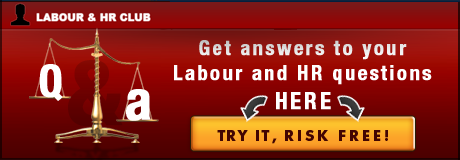
FREE eNewsletter
Sign up to Labour BulletinBe the first to know
Download your FREE report now
What can you do about employees who didn't show up to work because of today's taxi strike?
It's a jungle in Jo'burg this morning. Not only is the heavy raining causing havoc on the roads, but thousands of workers are stranded due to today's National Taxi Alliance (NTA) strike. And that's bad news for your business. Here's what you need to know about how to handle employees who couldn't [read more...]How to avoid a Miss SA type nepotism scandal in your workplace
There's a fresh scandal surrounding the Miss South Africa pageant. A few weeks back, news reports indicated that the general public wasn't happy with the choice of judges for the pageant. Now there's a rumours of t. And it's put the spotlight back on nepotism in the workplace. [read more...]Strikes: What does 'issue in dispute' mean?
News reports this morning indicate that government intends to meet with the Association of Mineworkers and Construction Union (Amcu) today in a last ditch attempt to halt a mass strike in the mining sector. The looming strike, which is expected to have a devastating impact on the economy, has [read more...]| by FSP Business, 22 July 2013 |
You must be able to address breaches of rules and standards when they occur to ensure fairness in your workplace. It's also essential to allow employees to raise issues when they arise. This ensures employees feel they have a voice and can talk freely about things that make them unhappy enough that it affects their work.
But to this efficiently, you must have a thorough understanding around grievances.
Here are the three basic principles around grievances:
#1: Resolve grievances as close to the source of the problem as possible. In addition, focus on the parties' interests and needs – what do they really want to see happen as the outcome from the grievance?
#2: Deal with grievances as quickly as possible. Your company must develop a culture of quick resolution within the stipulated deadlines.
#3: 'Have clear guidelines on how grievances should be dealt with. Managers must know how to conduct a grievance procedure so they can deal with grievances properly,' says the Practical Guide to Human Resources Management.
Underlying all of these principles is knowledge and communication.
All your employees must know that there's a grievance procedure and how to use it. It's crucial that managers are also clear on what to do when a grievance is lodged.
Understanding the basic principles around grievances will ensure you deal with grievances swiftly before they affect your bottom line.

Our company has amended its contracts of employment as the first weren't in line with the Basic Conditions of Employment Act. We signed the contract along with the union officials and the shop steward and agreed it will ... [see the answer]
